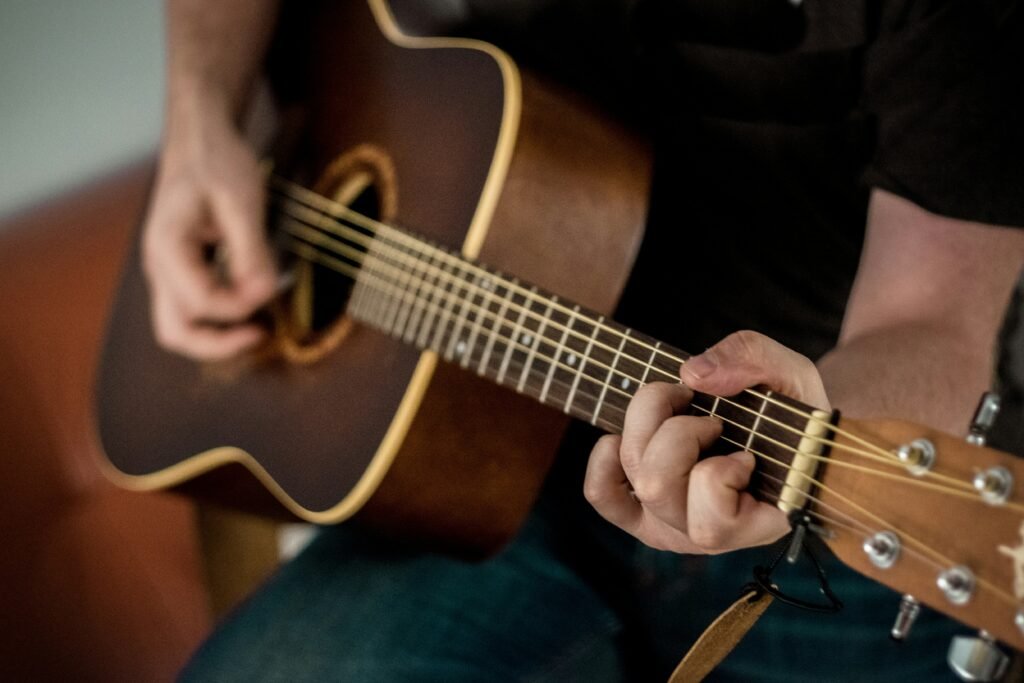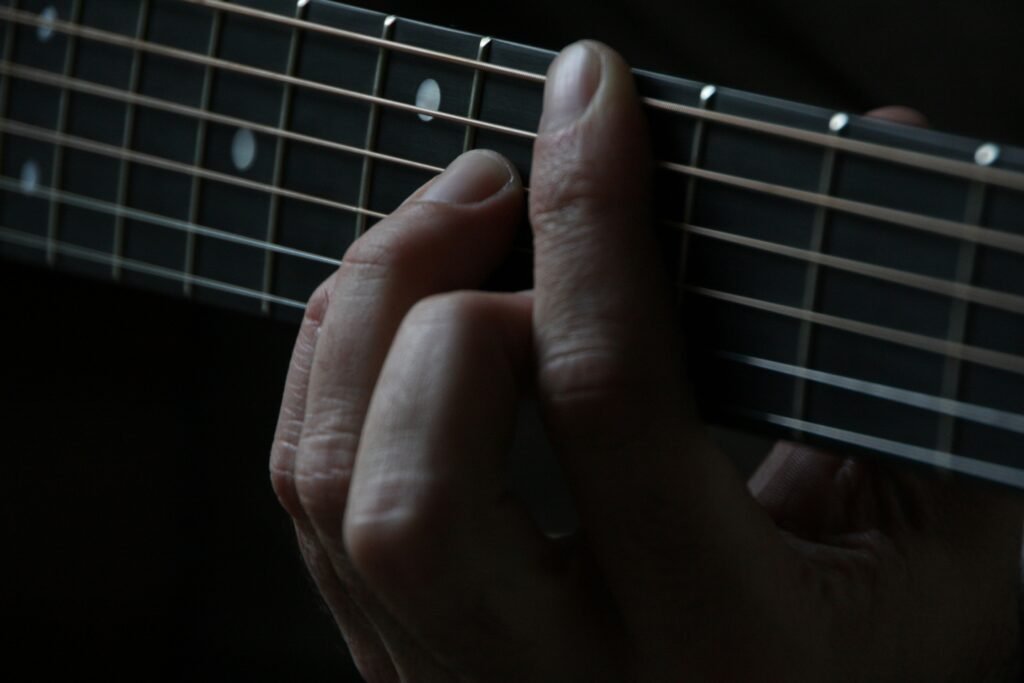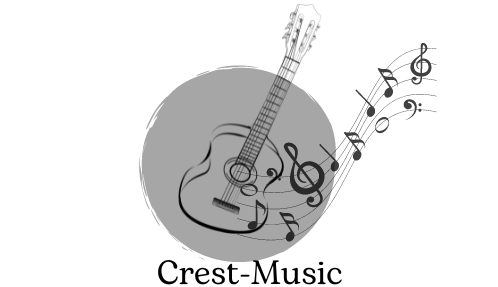Table of Contents

Learning to play basic guitar chords is the foundation of becoming a proficient guitarist. Whether you aspire to strum along to your favourite songs or write your own music, mastering these fundamental chords is essential. In this guide, we’ll walk you through everything you need to know to get started on your guitar journey.
Introduction to Basic Guitar Chords
Learning basic guitar chords opens up a world of musical possibilities and lays the groundwork for more advanced techniques. These simple finger positions produce harmonious sounds that form the backbone of countless songs across various genres. As a beginner, focusing on mastering basic chords will build a solid foundation for your guitar-playing journey.
Understanding Guitar Chord Notation
Before diving into learning chords, it’s crucial to understand how they are represented in chord diagrams and charts. Chord diagrams visually depict the placement of fingers on the fretboard, while chord charts provide a systematic representation of chords in a song or exercise.
Essential Beginner Guitar Chords
There are several essential beginner guitar chords that every aspiring guitarist should learn:
1. Open Chords
- Open chords are played using open strings and are the first chords most beginners learn. Common open chords include:
- C Major
- G Major
- D Major
- E Minor
- A Minor
2. Barre Chords
- Barre chords involve using one finger to press down multiple strings across the fretboard. While more challenging for beginners, they open up a wider range of chord possibilities and are essential for playing more complex music.
- F Major
- B Minor

Practice Tips for Beginners
Consistent practice is key to mastering basic guitar chords. Here are some tips to help you make the most of your practice sessions:
- Start Slow: Begin by practicing each chord individually, focusing on accuracy and clarity.
- Use a Metronome: Practice chord transitions in time with a metronome to improve rhythm and timing.
- Practice Regularly: Dedicate time each day to practice chords and chord transitions to build muscle memory.
- Be Patient: Learning guitar chords takes time and patience. Don’t get discouraged by slow progress—keep practicing, and you will improve.
Common Mistakes to Avoid
When learning basic guitar chords, it’s common to encounter challenges and make mistakes. Here are some common errors to watch out for and how to correct them:
- Fret Buzz: Ensure your fingers are pressing down firmly on the strings to avoid unwanted buzzing sounds.
- Muted Strings: Check that your fingers are not inadvertently muting adjacent strings while forming chords.
- Inconsistent Strumming: Practice maintaining a steady rhythm and strumming pattern to avoid choppy chord transitions.
Expanding Your Chord Vocabulary
Once you feel comfortable with basic chords, you can begin exploring more advanced chord shapes such as barre chords and power chords. These versatile chord shapes open up a wider range of musical possibilities and allow you to play a broader repertoire of songs.
Putting It All Together: Playing Simple Songs
The ultimate goal of learning basic guitar chords is to play music. Once you’ve mastered a few chords, try playing along with simple songs that incorporate those chords. Start with songs that have a slow tempo and straightforward chord progressions, then gradually work your way up to more challenging pieces.
Conclusion
Mastering basic guitar chords is a significant milestone in your guitar journey. By understanding chord notation, practicing diligently, and avoiding common mistakes, you’ll build a strong foundation for your musical endeavors. Remember to stay patient and persistent, as progress may come gradually but is ultimately rewarding.
Whether you aspire to strum along to your favorite songs, write your own music, or jam with friends, the ability to play basic guitar chords opens up a world of possibilities. Embrace the process of learning and enjoy the journey of becoming a skilled guitarist.
Now that you’re equipped with the knowledge and tools to play basic guitar chords, it’s time to pick up your guitar, practice consistently, and embark on your musical adventure. With dedication and passion, you’ll soon be strumming along to your favorite tunes and expressing yourself through the power of music.
FAQs About Playing Basic Guitar Chords
- How long does it take to learn basic guitar chords?
- The time it takes to learn basic chords varies depending on factors such as practice frequency and individual aptitude. With regular practice, most beginners can expect to master basic chords within a few weeks to a few months.
- Should I use a pick or fingerpicking to play chords?
- Both picking styles are valid for playing chords. Experiment with both techniques to see which feels more comfortable and suits your playing style.
- Do I need to learn music theory to play guitar chords?
- While an understanding of music theory can be beneficial, it’s not necessary to learn basic guitar chords. Many guitarists learn chords through visual diagrams and practical applications without delving deeply into music theory.
- What are some resources for learning basic guitar chords online?
- There are numerous online resources available for learning basic guitar chords, including instructional videos, chord charts, and interactive chord trainers. Websites like Ultimate Guitar and JustinGuitar offer comprehensive chord libraries and tutorials for beginners.
- How can I improve chord transitions?
- Practice transitioning between chords slowly and deliberately, focusing on maintaining accuracy and fluidity. Gradually increase the speed as you become more comfortable with each transition.
By following these tips and practising regularly, you’ll soon become proficient at playing basic guitar chords. Remember to be patient with yourself and enjoy the journey of learning and making music on the guitar.

Hi there! I’m Shimul, a music enthusiast with a lifelong passion for all things melodic and rhythmic. Raised in Bangladesh, I’ve been immersed in music since childhood, exploring genres from blues to electronica. Through this blog, I aim to share my love for music, offering gear reviews, guitar tutorials, songwriting tips, artist interviews, and industry insights. Join me on this musical journey as we celebrate the transformative power of music together!
